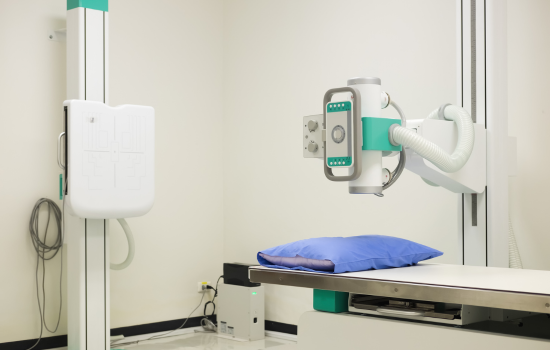Digital X-Ray
Digital X-Ray is a modern imaging technique that uses advanced sensors instead of traditional film to capture images of the body. It provides high-resolution, detailed images that help in accurate and quick diagnosis of various conditions.


Key Features of Digital X-Ray:
- Faster Results – Immediate image processing and viewing.
- Enhanced Image Quality – Better clarity for improved diagnosis.
- Low Radiation Exposure – Safer than conventional X-rays.
- Digital Storage – Easy to store, retrieve, and share reports electronically.
- Environment-Friendly – No need for film or chemicals.
Common Uses of Digital X-Ray:
- Detecting fractures, dislocations, and bone conditions
- Chest X-rays to diagnose lung infections or heart issues
- Abdominal imaging for kidney stones or digestive concerns
- Dental X-rays for assessing oral health and planning treatments
- Monitoring the progress of certain diseases or conditions

